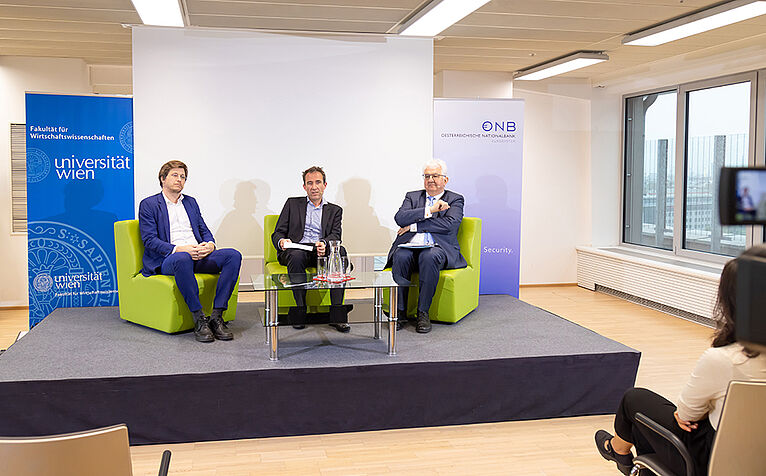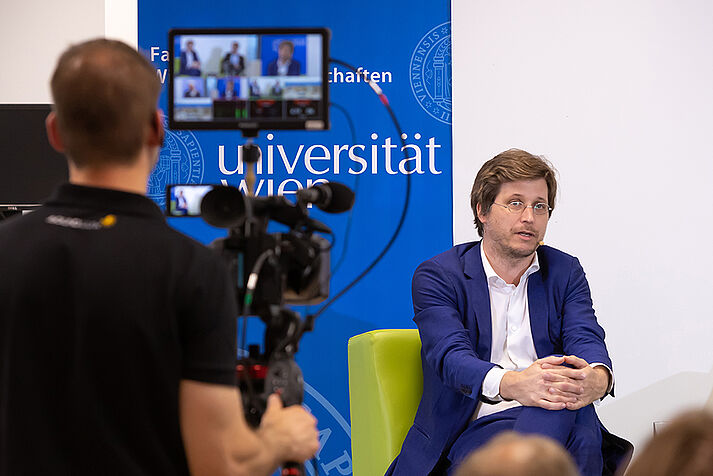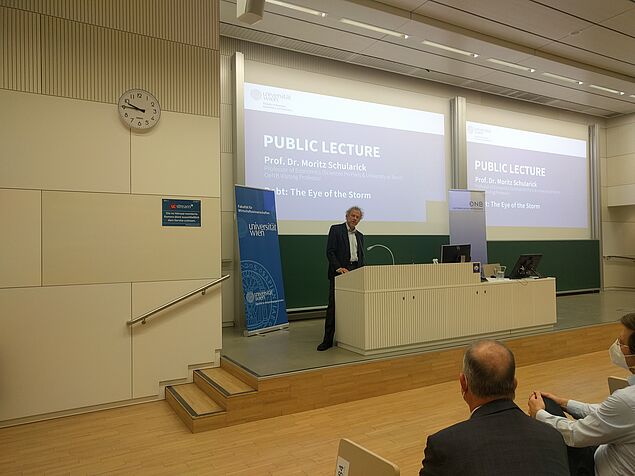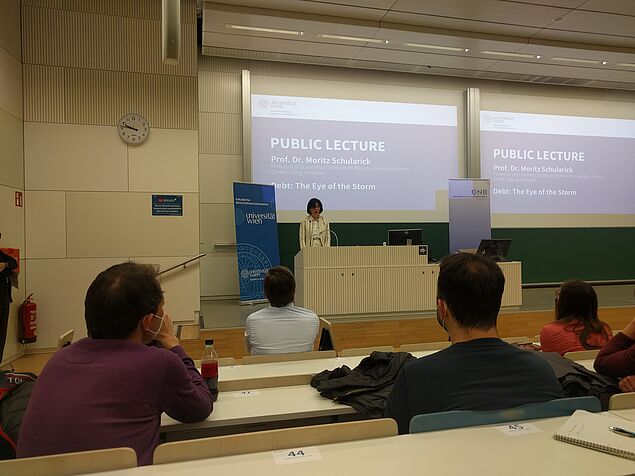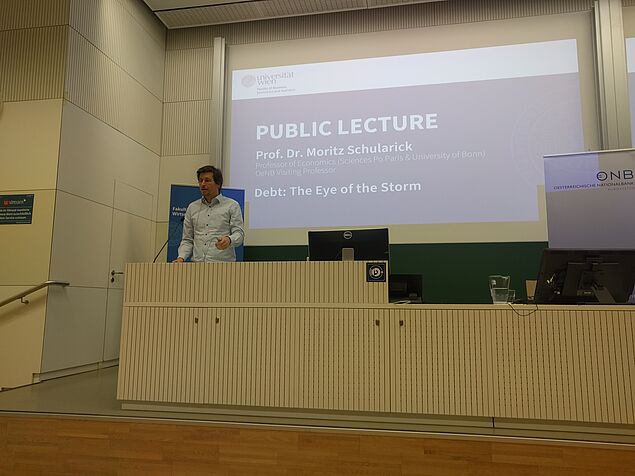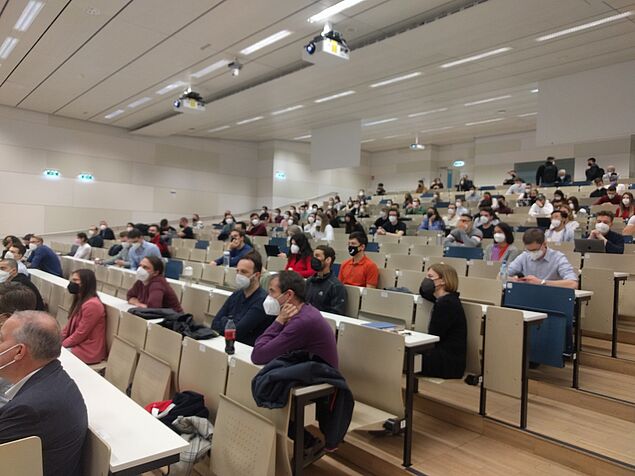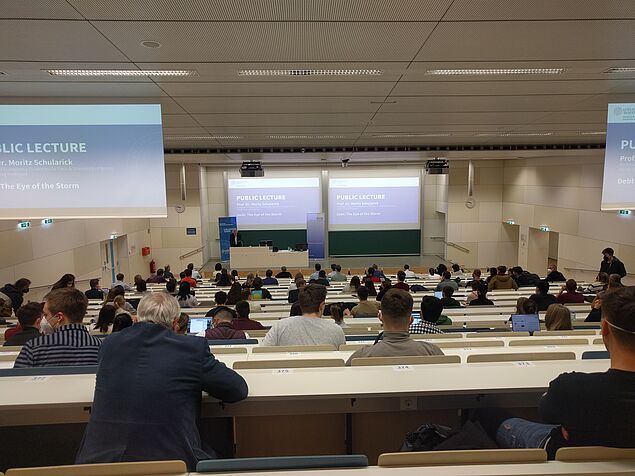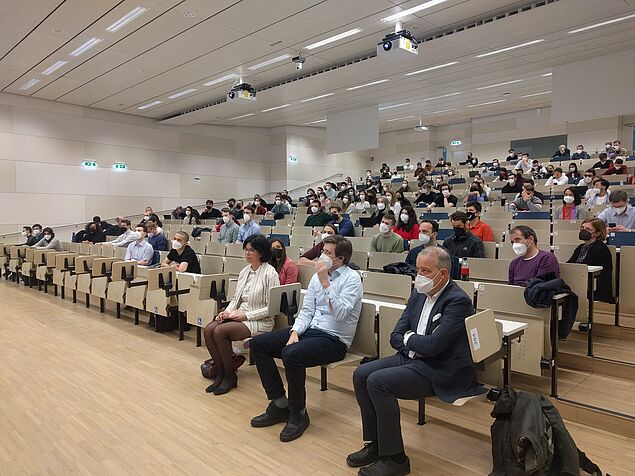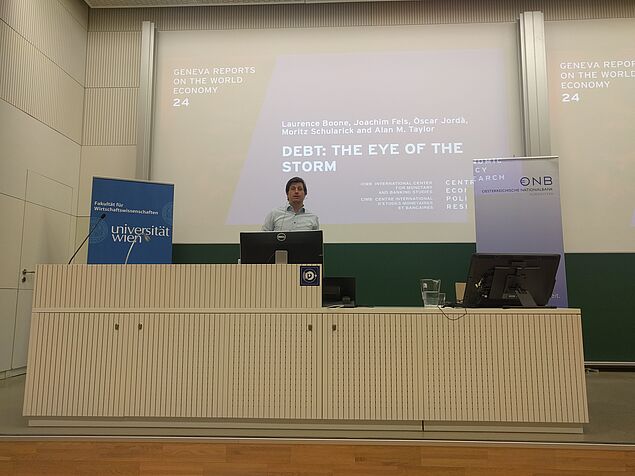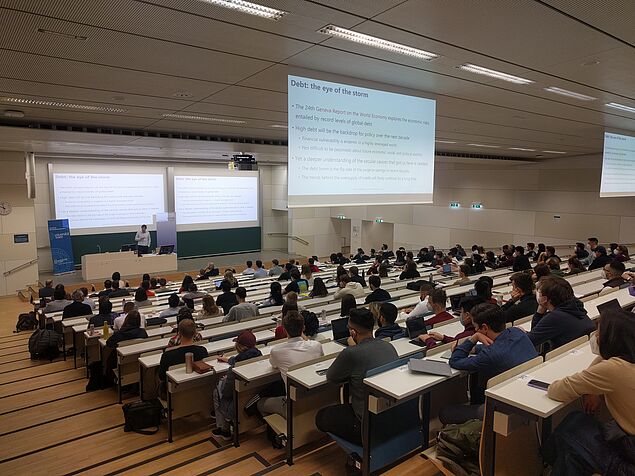OeNB-Gastprofessuren
2022 - Moritz Schularick
Moritz Schularick ist Professor of Economics an der Sciences Po Paris und der Universität Bonn. Darüber hinaus ist er Direktor des MacroFinance Lab und Vorstand des DFG-Excellence Clusters ECONtribute. Er zählt zu den Managing Editors des Journals Economic Policy, gewähltes Mitglied der Berlin-Brandenburgischen Akademie der Wissenschaften und ist gefragter Experte in den Medien. Weitere Informationen zu Moritz Schularick
Vergangene Events
24. Mai 2022: OeNB Dialog
Der OeNB Dialog fand am Dienstag, 24. Mai 2022, in der Skylounge der Fakultät für Wirtschaftswissenschaften statt.
Inflation, Vermögenspreise und Verteilungswirkungen
Zu diesem Thema diskutierten OeNB-Gouverneur Robert Holzmann und OeNB-Gastprofessor Moritz Schularick.
Moderation: Assoz.-Prof. Paul Pichler
Hier finden Sie den Event-Trailer: https://youtu.be/nX_uxoKkb4o
Rückblick: OeNB Dialog 2022
17. März 2022: Public Lecture
Die Public Lecture von OeNB-Gastprofessor Moritz Schularick fand am Donnerstag, 17. März, 9:45-11:15 Uhr, im Hörsaal 1 (HS1) statt.
Thema: Debt - The Eye of the Storm
Vorstellung des kürzlich erschienenen 24th Geneva Report on the World Economy.
Abstract:
The world economy is awash in debt. The debt levels of households, companies and sovereigns are at historical highs relative to output. The 24th Geneva Report on the World Economy explores the geo-economic risks entailed by levels of overall debt not seen in the history of humankind. Debt and credit are closely linked to financial crises, the evolution of the business cycle, and to the likelihood of negative tail events. Financial vulnerability is endemic in a highly leveraged world. In a time of such record-high debt, it is difficult not to be pessimistic about our future economic, financial, social and political stability.
As alarming as this sounds, a deeper understanding of the secular causes that got us here is needed. Taking a longer view, public and private sector debt in advanced and emerging market economies had already surged to unprecedented highs in the past four decades, before rising further in the Covid-19 pandemic. This debt boom is, mechanically, the flip side of the surge in gross savings and the multiplication of financial wealth experienced in recent decades. If we look at the asset side of balance sheets, we find that, relative to their income, households have never been wealthier. The trends behind the oversupply of credit will likely continue for a long time.
Against this background, the report studies the outlook for public, household and corporate debt. Special chapters deal with the outlook for the Chinese economy and inflationary risks. The overall picture that the report paints is not one of doom and gloom. Fears about zombification of corporates in advanced economies are likely overblown. Households in many rich countries have deleveraged after the 2008 crash. With a turn in the global interest rate cycle imminent, the largest risks are concentrated in emerging economies where household and corporate debts have risen sharply. China’s transition from financial boom to bust is a particular risk factor. Policymakers in Beijing and elsewhere are facing enormous challenges, and mistakes could happen and spill over onto innocent bystanders in a globalised economy.


